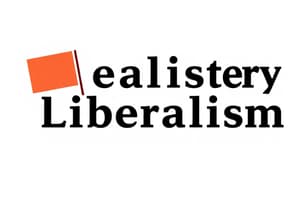Podcast
Questions and Answers
Which office is primarily concerned with human rights issues?
Which office is primarily concerned with human rights issues?
- OCHA Office for the Coordination of Humanitarian Affairs
- UNODA Office for Disarmament Affairs
- UNOG United Nations Office at Geneva
- OHCHR Office of the United Nations High Commissioner for Human Rights (correct)
What entity does the IAEA report to?
What entity does the IAEA report to?
- General Assembly and the Economic and Social Council
- Human Rights Council and the Security Council
- Office for the Coordination of Humanitarian Affairs and the GA
- Security Council and the General Assembly (correct)
Which department focuses on economic and social issues within the UN?
Which department focuses on economic and social issues within the UN?
- OIOS Office of Internal Oversight Services
- DESA Department of Economic and Social Affairs (correct)
- DGACM Department for General Assembly
- DFS Department of Field Support
Which of the following offices does not have a reporting obligation to the General Assembly?
Which of the following offices does not have a reporting obligation to the General Assembly?
Which office reports primarily to the General Assembly?
Which office reports primarily to the General Assembly?
What is the primary function of a theory in understanding phenomena?
What is the primary function of a theory in understanding phenomena?
Which of the following best represents the aspect of republican liberalism?
Which of the following best represents the aspect of republican liberalism?
What significant event greatly influenced the establishment of the first Department of International Politics in 1919?
What significant event greatly influenced the establishment of the first Department of International Politics in 1919?
Which principle is not emphasized within institutional liberalism?
Which principle is not emphasized within institutional liberalism?
Which of the following components is part of the structure of the League of Nations?
Which of the following components is part of the structure of the League of Nations?
How does economic liberalism approach international relations?
How does economic liberalism approach international relations?
What was a key purpose of Alfred Zimmern's position at the University College of Wales?
What was a key purpose of Alfred Zimmern's position at the University College of Wales?
Which of the following is considered a component of the United Nations system?
Which of the following is considered a component of the United Nations system?
What ideology emphasizes the role of democracy and education in international relations?
What ideology emphasizes the role of democracy and education in international relations?
Which concept highlights optimism regarding the potential for peace in international relations?
Which concept highlights optimism regarding the potential for peace in international relations?
What was a major outcome of World War I that influenced international politics?
What was a major outcome of World War I that influenced international politics?
What does the term 'self-determination' refer to in the context of Wilsonism?
What does the term 'self-determination' refer to in the context of Wilsonism?
Which notion is rejected by idealist theories in favor of peace and cooperation?
Which notion is rejected by idealist theories in favor of peace and cooperation?
Who was the inaugural holder of the Woodrow Wilson Chair of International Politics?
Who was the inaugural holder of the Woodrow Wilson Chair of International Politics?
What is a central claim of the Democratic Peace Theory?
What is a central claim of the Democratic Peace Theory?
How does the enlargement doctrine relate to democratic peace?
How does the enlargement doctrine relate to democratic peace?
What perspective does Andrew Moravcsik take regarding national interest?
What perspective does Andrew Moravcsik take regarding national interest?
What role do cultural and normative explanations play in understanding liberal democracies and peace?
What role do cultural and normative explanations play in understanding liberal democracies and peace?
In what way can the Antarctic treaty system be viewed through the lens of idealism/liberalism?
In what way can the Antarctic treaty system be viewed through the lens of idealism/liberalism?
What is the status of the Trusteeship Council as of November 1, 1994?
What is the status of the Trusteeship Council as of November 1, 1994?
Which office is responsible for the special advisement on Africa?
Which office is responsible for the special advisement on Africa?
What kind of organizations are specialized agencies in relation to the United Nations?
What kind of organizations are specialized agencies in relation to the United Nations?
What does the abbreviation 'DPI' stand for in the context provided?
What does the abbreviation 'DPI' stand for in the context provided?
Which of the following is NOT mentioned as part of the UN's operations regarding least developed countries and small island states?
Which of the following is NOT mentioned as part of the UN's operations regarding least developed countries and small island states?
What does the UNON stand for?
What does the UNON stand for?
What was the last United Nations Trust Territory before the Trusteeship Council suspended operation?
What was the last United Nations Trust Territory before the Trusteeship Council suspended operation?
Which entity operates at the intergovernmental level related to the UN's structure?
Which entity operates at the intergovernmental level related to the UN's structure?
Flashcards
What does DESA report to?
What does DESA report to?
The Department of Economic and Social Affairs (DESA) is part of the UN Secretariat and reports directly to the General Assembly (GA).
Who does OCHA report to?
Who does OCHA report to?
The Office for the Coordination of Humanitarian Affairs (OCHA) is a department within the UN Secretariat and reports to the Secretary-General.
Who does UNODA report to?
Who does UNODA report to?
The Office for Disarmament Affairs (UNODA) is a department within the UN Secretariat and reports to the Secretary-General.
Who does DFS report to?
Who does DFS report to?
Signup and view all the flashcards
Who does OIOS report to?
Who does OIOS report to?
Signup and view all the flashcards
Democratic Peace Theory
Democratic Peace Theory
Signup and view all the flashcards
Cultural Explanation of Democratic Peace
Cultural Explanation of Democratic Peace
Signup and view all the flashcards
Structural Explanation of Democratic Peace
Structural Explanation of Democratic Peace
Signup and view all the flashcards
Enlargement Doctrine
Enlargement Doctrine
Signup and view all the flashcards
New Liberalism
New Liberalism
Signup and view all the flashcards
Specialized Agencies
Specialized Agencies
Signup and view all the flashcards
ECOSOC
ECOSOC
Signup and view all the flashcards
CEB
CEB
Signup and view all the flashcards
Trusteeship Council
Trusteeship Council
Signup and view all the flashcards
Trust Territory
Trust Territory
Signup and view all the flashcards
Landlocked Developing Countries
Landlocked Developing Countries
Signup and view all the flashcards
Small Island Developing States
Small Island Developing States
Signup and view all the flashcards
Least Developed Countries
Least Developed Countries
Signup and view all the flashcards
Theory
Theory
Signup and view all the flashcards
Alfred Zimmern
Alfred Zimmern
Signup and view all the flashcards
Wilsonism
Wilsonism
Signup and view all the flashcards
Institutional Liberalism
Institutional Liberalism
Signup and view all the flashcards
Republican Liberalism
Republican Liberalism
Signup and view all the flashcards
Economic Liberalism
Economic Liberalism
Signup and view all the flashcards
League of Nations
League of Nations
Signup and view all the flashcards
Composition of the League of Nations
Composition of the League of Nations
Signup and view all the flashcards
Reform of the International System
Reform of the International System
Signup and view all the flashcards
The United Nations System
The United Nations System
Signup and view all the flashcards
General Assembly
General Assembly
Signup and view all the flashcards
Security Council
Security Council
Signup and view all the flashcards
Secretary-General
Secretary-General
Signup and view all the flashcards
Economic and Social Council (ECOSOC)
Economic and Social Council (ECOSOC)
Signup and view all the flashcards
International Court of Justice (ICJ)
International Court of Justice (ICJ)
Signup and view all the flashcards
Study Notes
Course Information
- Course Title: International Relations
- Course Code: BSPOL 1312
- Academic Year: 2024/2025
- Class: 2 - Idealism/Liberalism
- Lecturer: Dr. Valentina Brogna (replacing Prof. Amandine Orsini)
What is a Theory?
- A theory is a system of constructs (concepts) and propositions (relationships between those constructs).
- It presents a logical, systematic, and coherent explanation of a phenomenon of interest within specific assumptions and boundary conditions.
- Example cited: Bacharach 1989, cited in Bhattacherjee 2012, 25.
Theory Importance
- Good theories help to discern the key factors in an event, separating signal from noise.
- Theories structure observations, preventing overwhelming detail.
- Effective observation relies on sifting through irrelevant information.
- Theories provide valuable perspectives by simplifying complex events.
International Relations Debates
- Chart shows different eras (1920s, 1940s, 1950s, 1970s, 1980s, 1990s) of international relations with associated theories like Realism, Idealism, Historicism, Liberalism, Neo-liberalism, and other perspectives.
World War I
- Slides depict the period around World War I.
- The content connects past historical events to present-day political thought and theories.
Idealism
- A significant historical figure, Alfred Zimmern (1879-1957), is referenced.
- Idealism is associated with the League of Nations and the principles of:
- general association of nations
- disarmament
- public diplomacy
- free trade
- self-determination
- This concept has roots stretching back to the Treaty on War and Peace (1625) as well as ideas by Hugo Grotius (1583-1645).
Wilsonism
- Developed by Woodrow Wilson (1856-1924).
- Key Components include institutional liberalism, republican liberalism, and economic liberalism.
Institutional Liberalism
- Emphasizes institutionalised dialogue and agreements.
- Features figures like Hugo Grotius (1583-1645) & John Locke (1632-1704).
Republican Liberalism
- Idealism is closely linked to democracy and education as core tenets.
- Emphasizes the role of democratic states in creating peace.
Economic Liberalism
- Emphasizes the importance of organized free trade, as exemplified by figures like Montesquieu (1689-1755).
The League of Nations
- Focused on international cooperation after World War I.
- Slides show information on the League of Nations structure and its activities during the 1920s.
United Nations Commission
- Information on committees, member states, and other pertinent details from the League of Nations' successor are covered.
International Organisations (Examples)
- UN Food and Agriculture Organization (FAO)
- International Atomic Energy Agency (IAEA)
- International Civil Aviation Organization (ICAO)
- International Fund for Agricultural Development (IFAD)
- International Labour Organization (ILO)
- International Maritime Organization (IMO)
- International Monetary Fund (IMF)
- International Telecommunications Union (ITU)
Revisits to Liberalism
- The content revisits republican liberalism, exploring democratic peace theory, new liberalism's focus on grouped interests, and other related topics.
Idealism/Utopianism
- Focuses on the idea(l) of peace, institutions, and advice from philosophers.
Liberalism
- Focuses on war and peace, with a focus on peace.
- Discusses the concept of anarchy and its relation to civil societies and the role of states.
Readings
- Important texts are referenced to support the topic of idealism and liberalism.
Studying That Suits You
Use AI to generate personalized quizzes and flashcards to suit your learning preferences.




